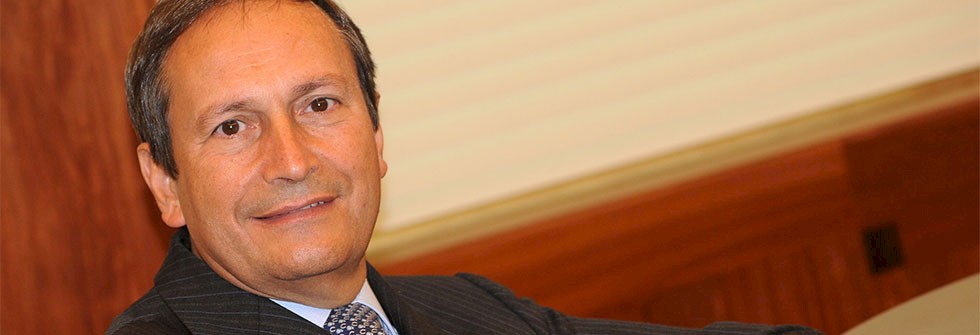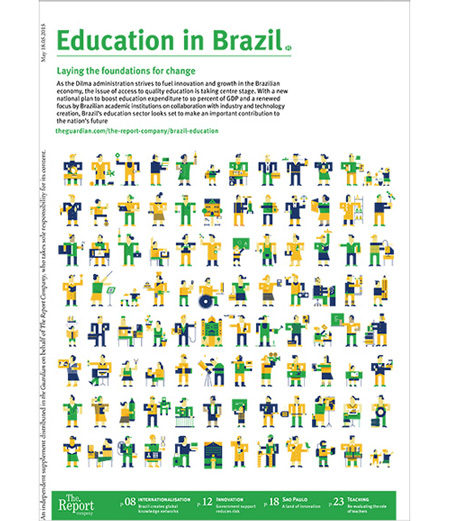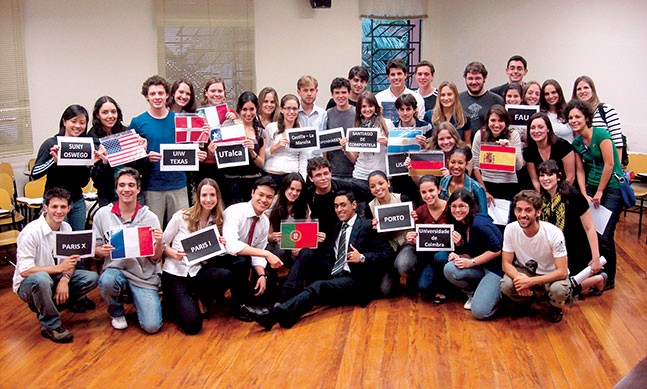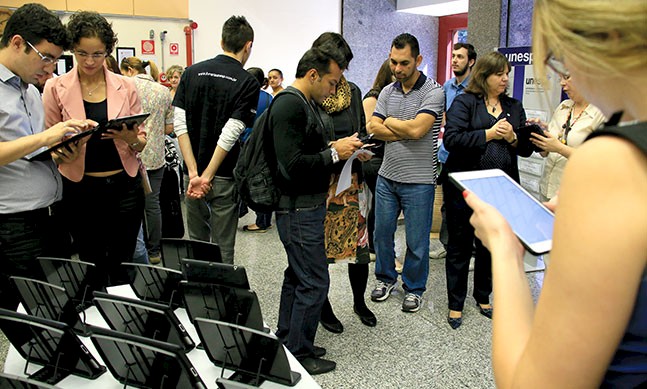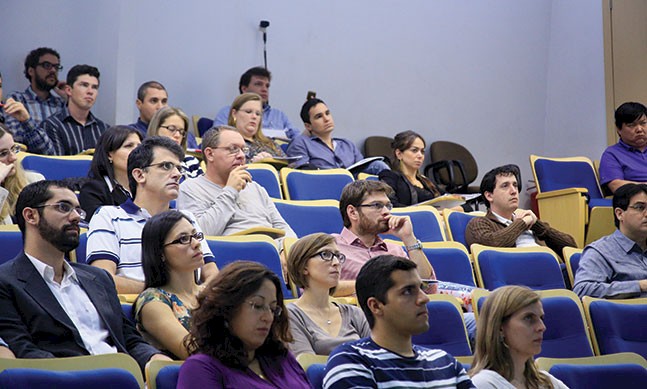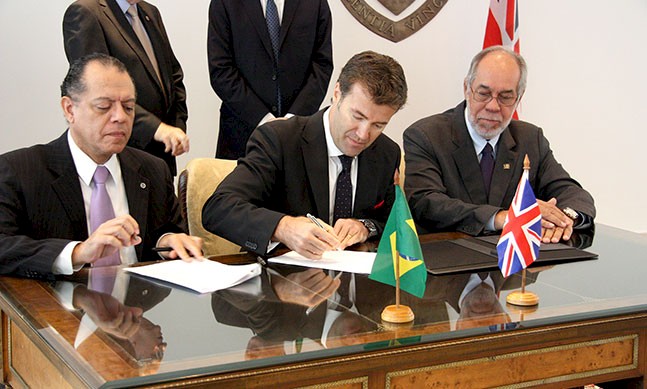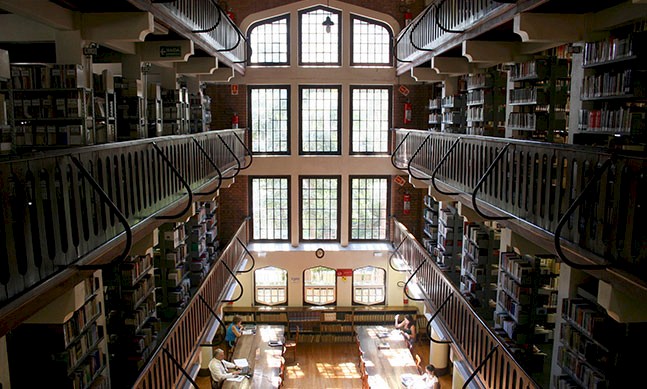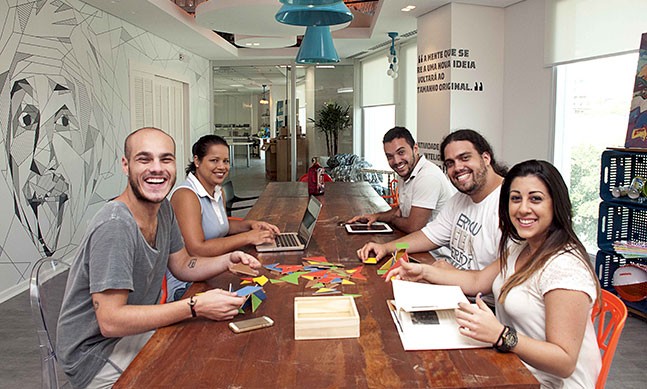The central concern of the Fundacao Itau Social, the social investment arm of Itau bank, is the sustainable development of Brazil as a country. At the heart of that idea is its education system. The foundation’s vice-president, Antonio Jacinto Matias, has been working with the programme since its inception in 1993. Today, his stance of cautious optimism about the future of education is Brazil is countered with the insistence that if positive change is to happen, it must be realistic, well-focussed and, perhaps most importantly, begin as soon as possible.
The Report Company: How do you see the evolution of education in Brazil and where do its greatest challenges lie?
Antonio Jacinto Matias: Education is the biggest bottleneck stopping sustainable growth in Brazil. If we look at it historically, it has shown mild improvements in the last few decades as we reached universalisation, started an evaluation process and now have better financing schemes which have improved the structure of education. However, at no point in history has education been truly a priority for the country. If society does not demand that the authorities make it a priority, then they will deal with it only as far as it is convenient in their quest for power.
There is no project, as a country, that forces our political actors to make commitments to a long-term plan. There is no continuity, and no plan is being developed. There is no coordination between the layers of government. Let us remind ourselves that primary and middle school education is mainly a responsibility of municipalities; high schools are a responsibility of states; and higher education of the federal government. The trick for all of it to work together is a perfect articulation between these three levels, which does not exist. The creation of a National Education Plan is a move in the right direction.
TRC: Was it not education that took thousands to the streets in protest back in 2013, forcing President Dilma to create the National Education Plan in the first place?
AJM: These responses are often only of topical relevance, not part of a large, overarching, long-term plan. First of all, Brazil is still a poor country. Although we have been using more than five percent of our GDP in education, these resources are not being well implemented. The Brazilian model of education management simply does not work. Plans rarely last longer than one administration and, when they are implemented, they rarely reach the classroom. Therefore, there are problems in every level.
There are challenges in key areas such as curriculum, teacher training, school leadership, evaluation and, especially, the structuring of a teaching career that attracts young people to teaching. Brazilian teachers get around 10 percent of the salary of a Swiss teacher.
TRC: What can be done to address teacher motivation?
AJM: What we can do is start solving the problem, start a process, but there is no sign on the horizon that Brazil is preparing any such solution. Don't get me wrong, we have been talking a lot about it. Municipal secretaries, state secretaries and ministers have been talking about it. However, in practice, the first step - coordinating higher education courses that train teachers with real-world needs, improving curriculum and teacher training courses - is not being done.
The training of teachers is not being modernised. If Brazil hasn’t even addressed the issue of changing high school curricula to allow them to be more adaptable and modern, how can we properly train those who convey knowledge or promote learning? We have a very serious problem that is centred around teachers, but Brazil is not tackling it the way it should. There isn't the political will to do it.
TRC: In October 2009, you said that National Education Plan (PNE) was a very important step, but that the road ahead was a long one. What results can we expect to start seeing from the plan?
AJM: I would first expect them to look at it and reduce its ambitions in terms of the number of goals. I think they have to reduce the number of targets to improve the focus. The juxtaposition of different points of view, desires and political negotiations created a very large number of goals that are impossible to meet.
Until Brazil wakes up to how dramatic this issue of quality is, we will become increasingly distant from other educational systems in countries that have already woken up to the issue.
TRC: You are part of the Todos Pela Educacao [Everyone for Education] movement which was founded in 2006 with members of the private sector to try and put education on the political agenda. How successful have you been?
AJM: As a founding member, I helped develop our goals, our ideals and attitudes, to put forth a communicable effort to engage society and to make the political system aware of the importance of such an agenda.
We established five goals for 2022 which would bring us closer to an admirable educational system, but while we have the ability to mobilise people and to call people's attention to the problem, we are not architects of models and systems. It is frustrating that some very important problems have not been addressed by those that are.
At the age of eight, for example, not many children in Brazil really know how to read and write. Many of them continue to be functionally illiterate, and that low ability in reading and comprehension keeps them from accumulating knowledge and learning other subjects like maths. At Everyone for Education, we are happy that we are able to address such an important priority, but sad to see that the gap has not decreased, in fact quite the opposite. There are some initiatives that are on the right track, but they are still not national projects.
“I don’t want to appear overly pessimistic about the education system in Brazil, and there are many positive examples and successful projects, but I am anxious.”Tweet This
TRC: How can education become a priority to people who themselves did not receive a high-quality education?
AJM: Education is never addressed in the very short term. One explanation for this first stage in the relationship between parents and schools is that parents received a poorer level of education than their children, but this is not the case among some immigrant families, where parents make sure that a good education for their children is an absolute priority, despite they themselves never having had one.
Unfortunately, we are still in a situation where we are concerned about the school’s very existence, or transportation and decent food being provided, rather than concerned that they are really learning and getting ready to face the world. There is the need of expanding the school day – Brazilian students spend only four or five hours per day in school – but there is also the need to diversify the curriculum and strengthen the work of NGOs and after-school programs. Families need to be part of this debate. That is what we have been trying to do at Everyone for Education: make families aware of the role they have in their children's education.
I don’t want to appear overly pessimistic about the education system in Brazil, and there are many positive examples and successful projects, but I am anxious. When you are pessimistic, you think there is nothing you can do. When you are anxious, you think you can do much more. What we have been doing is good and we are on the right track, but it is still not enough.
TRC: Could innovations such as distance and online learning actually increase inequality due to lack of access?
AJM: I am a radical on that matter. I am not at all concerned. I believe that if there exists something that could help the educational system, then let’s use it. The first thing we have to do, however, is to question the system we have. We have to prioritise equity, which means having better teachers, continuing to provide universal access, having better school managers and, ultimately, the tools to push these children forward.
Public resources predominantly need to be dedicated to inclusion, to improve the lives of those who cannot do it by themselves. It is not as if we are going to give them public resources, but we can stimulate them through strategies and guidance. We can facilitate the process of private resources being used to improve the quality of the educational system as a whole.
TRC: What is the role of the private sector in education?
AJM: Here at the foundation, we always work in partnership with the public and non-profit sectors. I don’t believe that the private sector can even think about having any kind of tutelage over the public sector, even if public managers are not good. On the other hand, the public sector cannot ignore the contribution that the private sector can make. I think the public sector needs to be accountable, but that the private sector and NGOs can help them achieve their goals. It is the public sector that needs to be empowered and do things.
The UK and the United States have many examples of strategies that were incorporated by the public sector after successful implementation in the private sector. All we do is feed public managers with possibilities, we cannot ever replace them.
TRC: From the standpoint of Itau, what is your take on the problems in this relationship?
AJM: First I have to say that no one has ever looked at Itau Social and thought that the bank was benefiting from it in any way. From its inception, the foundation has always been very distant from the political workings of the bank. Moreover, we do not sell programmes or oblige anyone to buy our programmes. All we do is provide a service.
How do we do that? First of all, we have a good relationship with the ministry of education, as an institution that is at the service of the ministry. We have the Programa Olimpíada da Língua Portuguesa [Portuguese Language Olympiad Programme], the goal of which is to improve the quality of Portuguese teachers. We take care of the content, and they take care of the logistics. Ministers have come and gone, but they always see that the program is good for the ministry.
We also have partnerships with state and municipal secretariats of education. These partnerships take place independently of which party is in power, because they are focused on building the internal capacity of school systems to design and implement effective reform. In the state of Goias, more than five secretaries of education have come and gone and we continue our work there.
Private institutions can give projects credibility, which the public sector alone may not have. In my view, however, it is about the project. Development banks will give money to projects, so it is the project that has credibility. IBRD or the IADB will not give money to governors because the Itau Social Foundation or the Victor Civita Foundation or the Natura Institute support them. They care about the project. But this is only the case as long as there is a good project involved.
TRC: What is your view of the future?
AJM: Regarding education, I am moderately optimistic. Progress in the last two decades means that Brazil is indeed a better country today than it was 20 years ago. I am optimistic because I expect the country to create the conditions for an acceleration of development, but I am very careful about it and we have a number of threats that may risk this moderate optimism.
For instance, Brazil has a serious problem with productivity to compete in the world market. Plus, if Brazil does not address its educational challenges, it will not evolve and will increasingly lag behind other countries. Moreover, there is a problem with citizenship. It is very easy to say that there is only as much corruption in Brazil as there is in other countries, but the institutionalised corruption we have been seeing suggests that we have an uneducated people that is not preventing it from happening.
No miracle will bring us better teachers, materials, technology and everything else we need. It is a set of combined efforts, including those that apparently only help the privileged, like access to broadband connections. It is all about the whole picture, and the whole picture needs to improve.
“I am optimistic because I expect the country to create the conditions for an acceleration of development, but we have a number of threats that may risk this moderate optimism.”Tweet This


